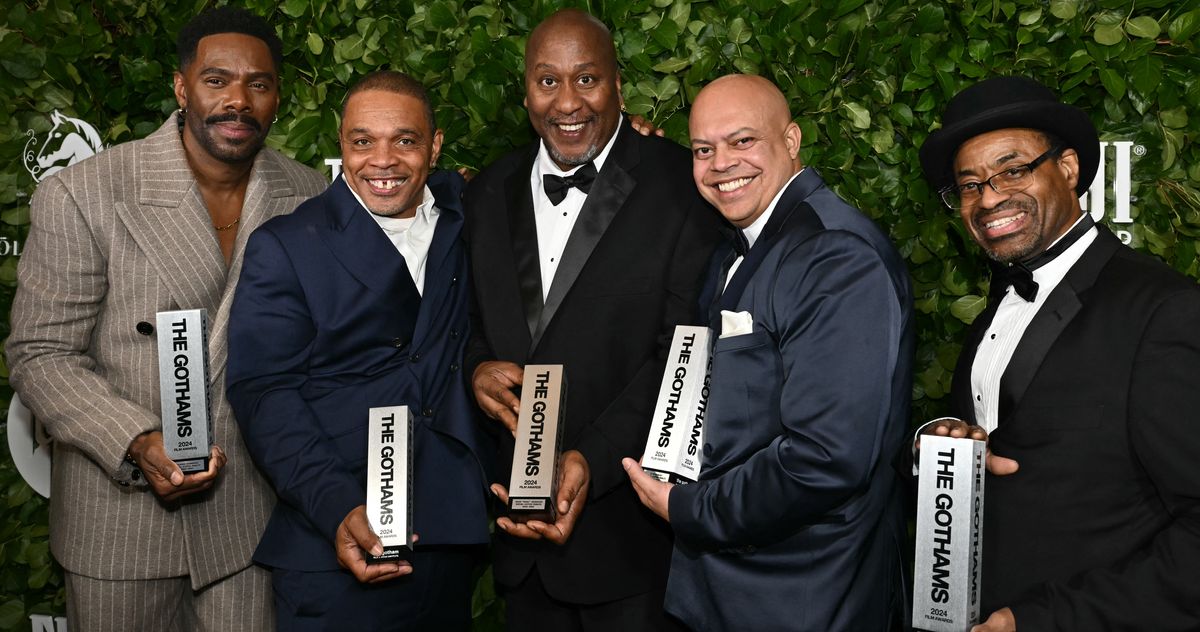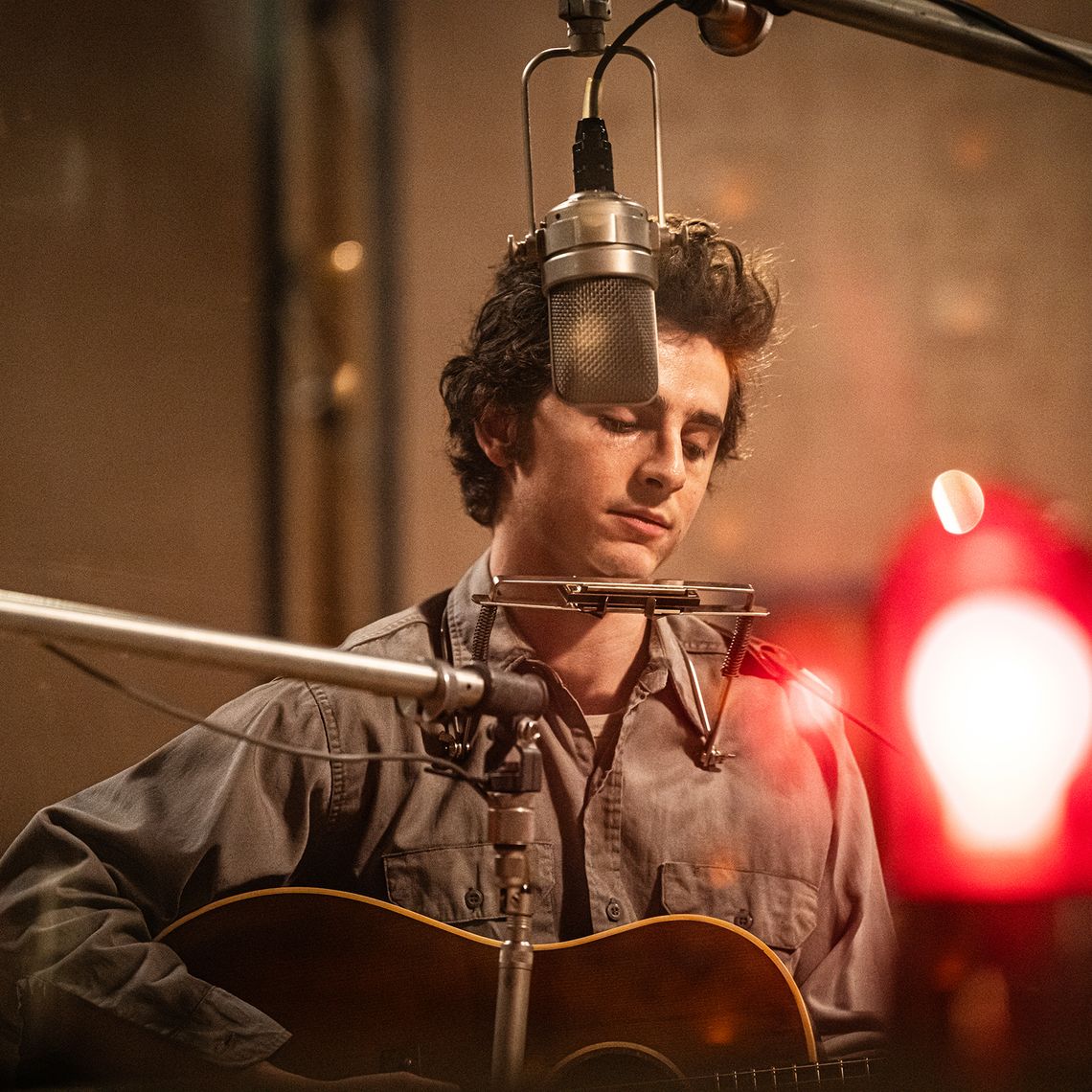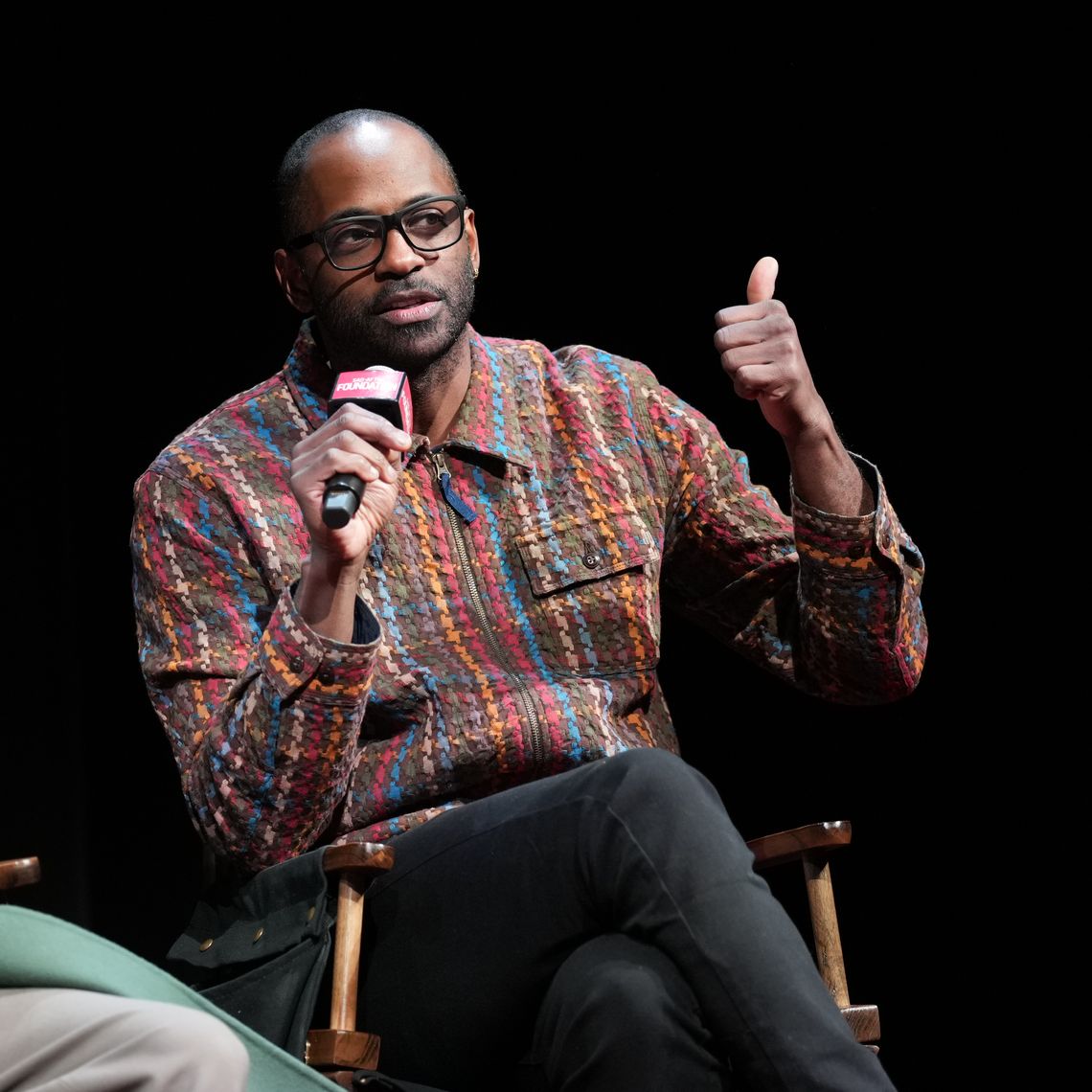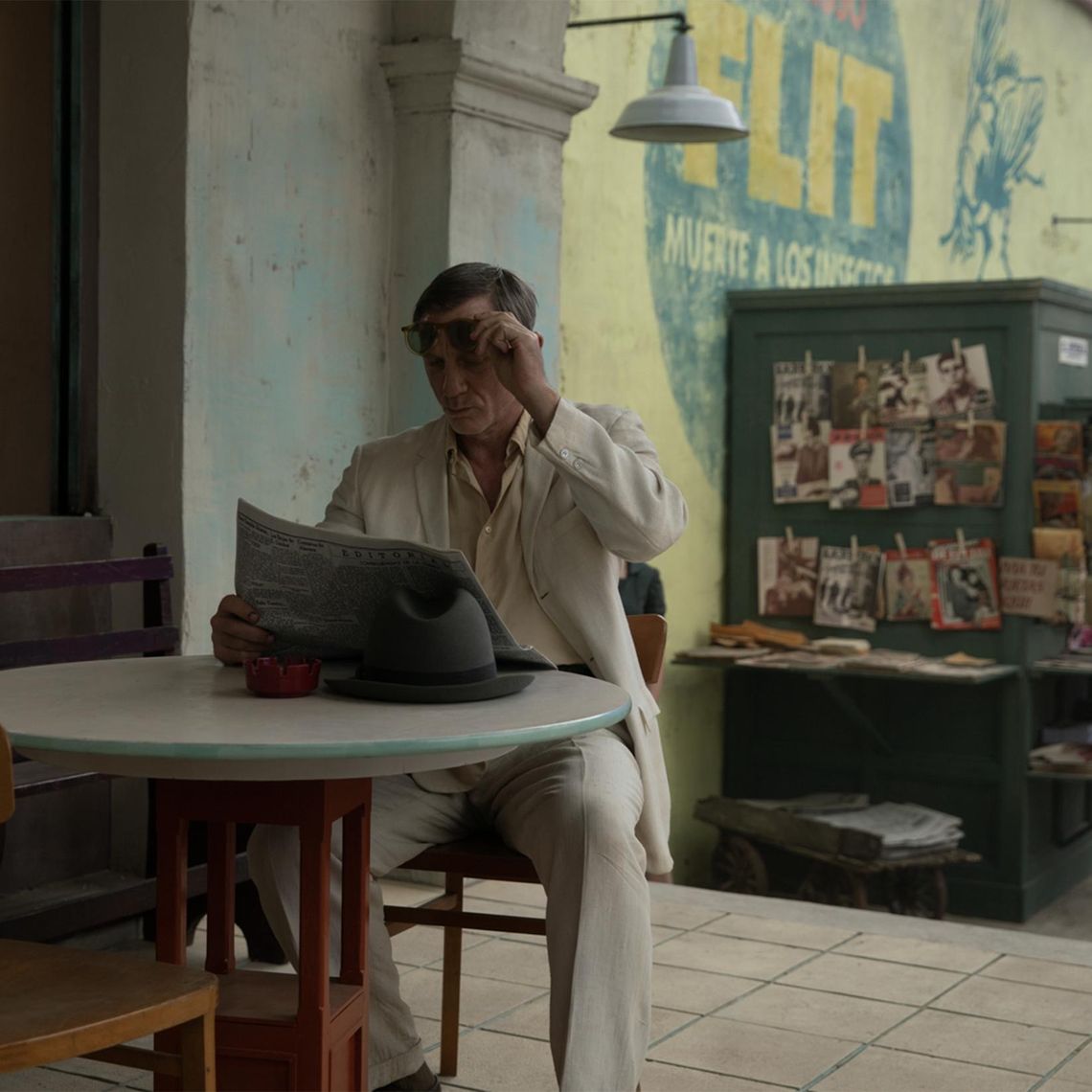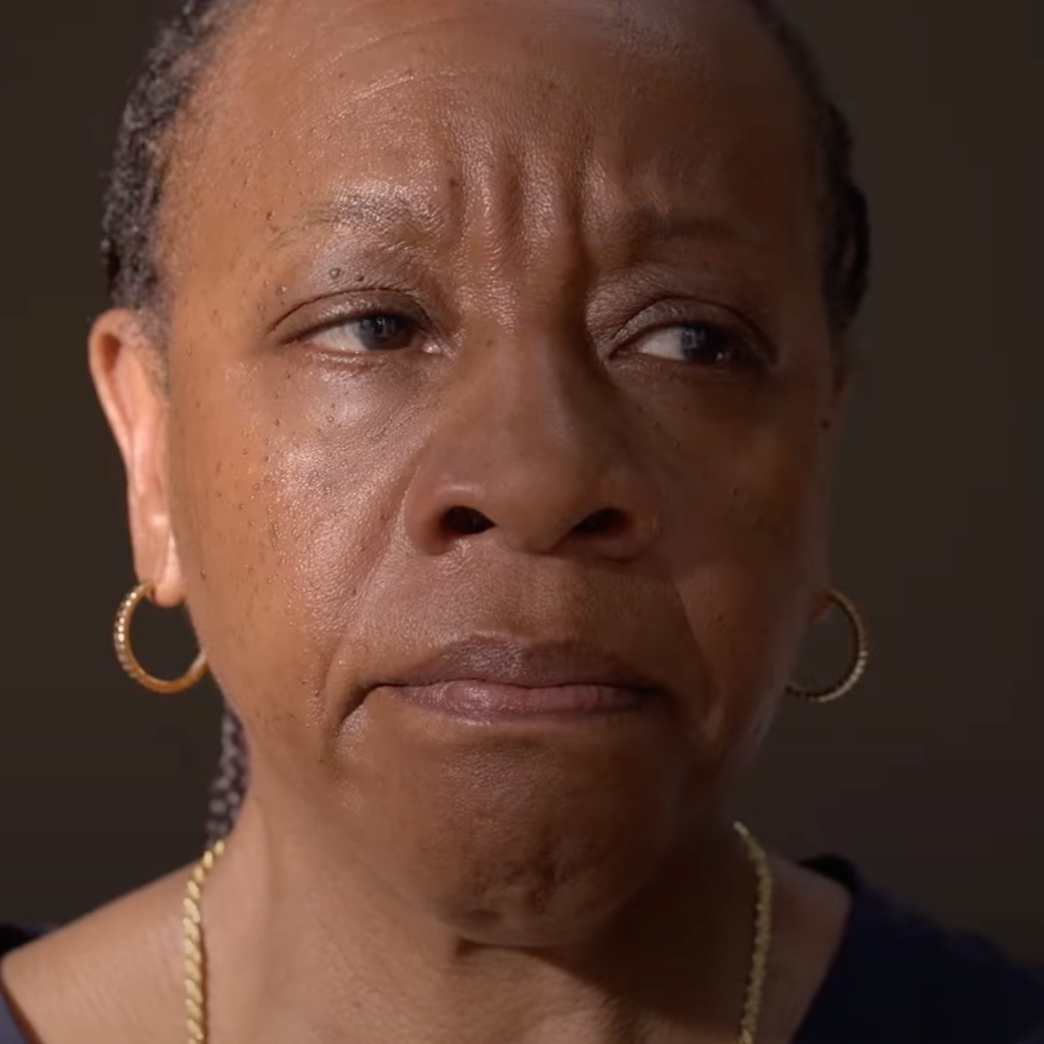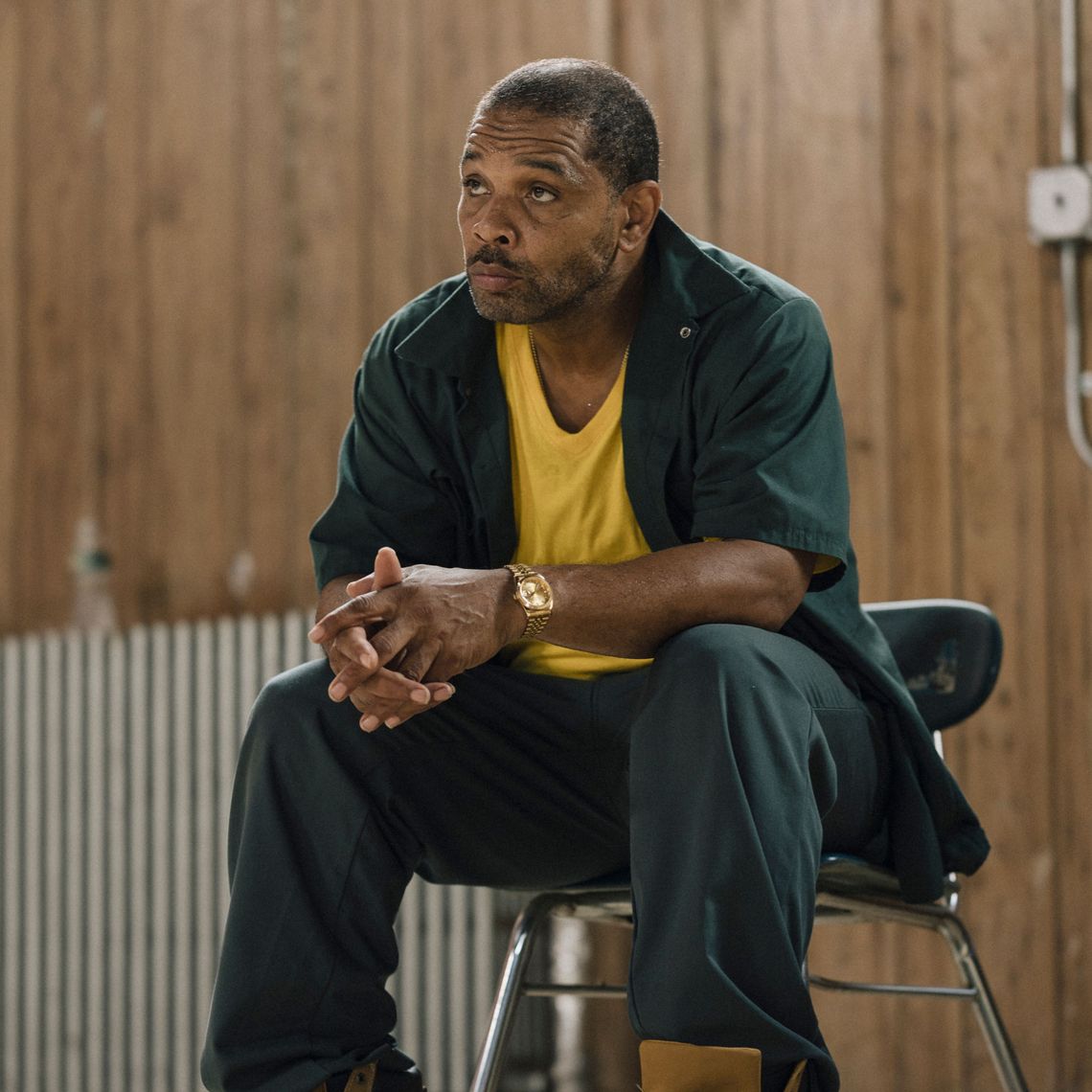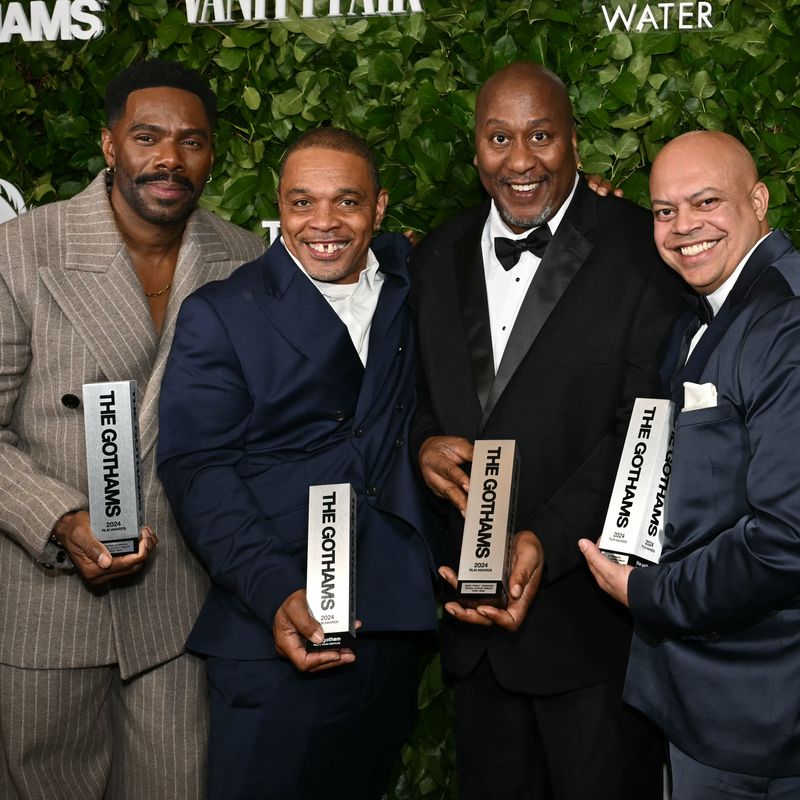
The Sing Sing team.
Photo: Angela Weiss/AFP/Getty Images
The first week of December is always a whirlwind on the Oscars front. On Monday, the Gotham Awards lit up Wall Street with plates full of melted cheese and approximately 73 different tribute awards. On Tuesday, the New York Film Critics Circle members sequestered themselves to vote on their favorites, like Conclave with even more vaping. Wednesday brought the National Board of Review’s winners and the Spirit Award nominations, while Thursday saw the American Film Institute release its top-ten list. For many, this flurry marks the official arrival of Moira Rose’s favorite season.
However, awards season is not just one season. By my count, it is in fact made up of five separate mini-seasons, the third of which began this week:
➼ Festival Season (late August to early October)
Awards season kicks off in earnest with the star-studded premieres of Venice, Telluride, and Toronto, after which contenders aim to consolidate their reputations at New York and the regional festivals.
➼ Vibes Season (mid-October to late November)
The first awards movies begin to hit theaters. Early-year hopefuls attempt to reintroduce themselves. Titles that skipped the fall festivals rush to screen in time for critics’ year-end lists. This phase climaxes at the Governors Awards, where everyone’s in a good mood because no one’s dreams have yet been crushed. (My thanks to The Ankler’s Katey Rich for the title of this one.)
➼ Tastemaker Season — YOU ARE HERE
The Gotham Awards heralds the start of actual prize-giving, followed by critics circles and bodies like the National Board of Review and Golden Globes making their picks. This is the most perilous time for an awards pundit: There’s just enough info to feel like we know what’s going on, but in truth we have no idea.
➼ Industry Season (mid-December to mid-January)
Right before Christmas come the Oscar shortlists, where we hear from real-life Academy members for the first time. After a holiday break (and the Globes telecast), the various guilds weigh in with their nominations. This phase climaxes with the Oscar noms, which shift us into …
➼ Phase Two (late January to early March)
The only micro-season that has an official name. (Everything before the noms is Phase One.) The field is winnowed and campaigning gets much tougher. The signature event of this phase is the annual Nominee Luncheon, which gives us the iconic class photo. Finally, after six months of buildup, we get the big night — March 2, in case you were wondering.
For a New Yorker, the first week of Tastemaker Season means the circus comes to town. Most of the main contenders fly in for the Gothams, and many stick around to get some extra campaigning in. On Tuesday night I attended events for Wicked and Emilia Pérez, which meant in a two-hour span I was in the same room as Ariana Grande and Selena Gomez (the closest I have ever come to feeling like Zedd), while further uptown A24 threw a screening of Queer — though I don’t know if the timeline worked for anyone to be able to catch this season’s Boston-coded double feature.
Much of the chatter at these parties touched on the fundamental issue of Tastemaker Season. Namely: Did anything that happened at the previous night’s Gothams, or at the NYFCC that afternoon, actually matter?
The reason for caution is obvious. Everything that happens in Tastemaker Season is determined by small, entirely unrepresentative bodies: a few dozen New York journalists at the NYFCC, tiny juries of creatives at the Gothams. (Even calling it a “New York bubble” is generous; since I have colleagues in both groups, it might as well be a New York bubble.) The first time I went to the Gothams, in 2019, the big winner was Marriage Story. The next time it was The Lost Daughter. Both had decent seasons, but I suspect their awards journeys would have been entirely unchanged had they each gone home that night empty-handed.
Still, they do have influence, especially on the margins. The same year The Lost Daughter won Best Feature, the Gothams handed their international-film prize to Drive My Car. The NYFCC followed suit, as did other critics groups, and these wins played a pivotal role in getting Ryusuke Hamaguchi’s film onto Oscars voters’ radars. That’s why I think the main beneficiaries this week are smaller films in dire need of the attention the tastemakers provide. Movies like the Latvian animated film Flow, which upset starrier competition at the NYFCC and NBR, and landed an International nom at the Spirits. Or the Palestinian documentary No Other Land, which won nonfiction honors at the Gothams and NYFCC, and received a special award from the NBR, despite (or perhaps because of) the fact that it currently lacks a distributor.
Higher-profile contenders benefit from the spotlight, too. I had been bullish on Sing Sing’s chances, still I couldn’t really argue with anyone who was skeptical. But at the Gothams I saw the effusive reaction in the room when the film’s formerly incarcerated actors came onstage to receive their tribute award. I saw Supporting Performance winner Clarence Maclin earn the night’s biggest standing ovation. I saw Lead Performance winner Colman Domingo dedicate a characteristically heartfelt acceptance speech to his castmates. Before, we thought Sing Sing was a strong contender. Now, we’ve felt it. That matters.
And a victory at one of these ceremonies can be its own reward, of course. In their closing minutes, the Gothams threw a curveball by awarding Best Feature to A Different Man, a dark dramedy about an actor with a facial deformity that had otherwise been entirely shut out. In all likelihood, this was a one-off event. The film didn’t make much noise in limited release this fall, it sits far down the list of A24’s priorities, and it wasn’t even nominated in the top category at the Spirit Awards. But that big win at the Gothams shouldn’t mean less because it stands alone. If anything, it should mean more. (I wonder if director Aaron Schimberg regrets not preparing a speech — though, in a way, that, too, made it a perfect awards-season moment.)
The best thing about Tastemaker Season is that, while the wins might not mean much, the losses don’t mean anything at all. One of the surprises of this week has been the relative underperformance of two films everyone expected to clean up: Anora and The Brutalist. Both films were shut out at the Gothams — I saw a couple of the Anora dudes mingling dejectedly by the bar before last call, though that just may be how they look all the time — and had an up-and-down reception at other precursors. The Brutalist won Best Film and Best Actor from the NYFCC but suffered some shocking misses at the Spirit noms; Anora did well at the Spirits but had to make do with a consolation-prize Screenplay win from the critics. In a sense, both films were victims of their own success: Since they’re widely pegged as front-runners, the tastemakers assumed they didn’t need any help. And you know what? They were probably right! On Thursday, Anora and The Brutalist both made the AFI top-ten list, an honor that usually prefigures a Best Picture nod. They’re going to be fine.
Every week between now and January 17, when the nominations for the Academy Awards are announced, Vulture will consult its crystal ball to determine the changing fortunes in this year’s Oscar race. In our “Oscar Futures” column, we’ll let you in on insider gossip, parse brand-new developments, and track industry buzz to figure out who’s up, who’s down, and who’s currently leading the race for a coveted Oscar nomination.
Photo: Lol Crawley/A24/Everett Collection
Like a rich industrialist exploiting immigrant labor, precursors giveth to The Brutalist and precursors taketh away. Brady Corbet’s cinematic colossus was the big winner with the NYFCC, taking Best Film and Best Actor for Adrien Brody. But the three-and-a-half-hour epic only nabbed a lone directing nod for Corbet at the Spirits, and found the NBR’s top 10, where it was left out in favor of Gladiator II, a brutal list. Better days are surely ahead, but for now The Brutalist occupies an uncomfortable middle position: not enough of an underdog for the artier precursors, not mainstream enough for the middle-of-the-road ones.
Photo: Macall Polay/Searchlight Pictures
While it’s rare for a single precursor to field the exact same nominees as the Oscars, it did happen last season at the PGA nominations. This year’s AFI top 10 list raised eyebrows for presenting an extremely plausible preview of the Best Picture lineup, the tenth spot going to the Bob Dylan biopic, which has been gaining momentum ahead of its Christmas release. Perhaps the AARP Movies for Grownups noms, where A Complete Unknown first showed its strength a few weeks ago, are a better bellwether than we thought?
Anora, The Brutalist, A Complete Unknown, Conclave, Dune: Part Two, Emilia Pérez, Nickel Boys, A Real Pain, Sing Sing, Wicked
Photo: John Nacion/Getty Images
Alongside Sing Sing, Nickel Boys was the other big winner of Tastemaker Season. Not only did Ross win a pair of directing prizes from the Gothams and NYFCC — at 6’ 6”, he joked he was the tallest person to ever ascend the podium at the former — the film also earned recognition for actor Brandon Wilson at the Gothams and Jomo Fray’s first-person cinematography at the NYFCC. It’s no surprise that critics are championing Ross’s challenging, formally audacious work. Considering how auteur-friendly the directors’ branch has become in recent years, the Academy could follow suit.
Photo: Ben Stansall/AFP via Getty Images
Of this week’s precursors, the National Board of Review skews the most commercial. (Remember, they named Top Gun: Maverick the best film of 2022.) Still, few could have predicted how heavily they would fall for Wicked, handing the musical Best Film and Best Director honors plus a special award for “the creative collaboration of Cynthia Erivo and Ariana Grande.” While I’m skeptical a studio filmmaker like Chu will find the same favor from the Academy’s snobbiest branch — Maverick’s Joseph Kosinski never came close to cracking the Oscar lineup — if these laurels continue, I may need to reconsider.
Jacques Audiard, Emilia Pérez; Sean Baker, Anora; Edward Berger, Conclave; Brady Corbet, The Brutalist; RaMell Ross, Nickel Boys
Photo: A24
In one of this week’s less-surprising results, the New York critics spotlighted Brody’s gut-wrenching turn as a Hungarian Holocaust survivor in The Brutalist. However, just to keep us on our toes, the Spirit Awards followed up by snubbing him in their gender-neutral Lead Performance category. The 2003 Best Actor winner is in no danger of missing out with Oscar, but in this unsettled category I’m not ready to call anyone a frontrunner just yet.
Photo: A24
With Timothée Chalamet seemingly cementing his spot, we’re down to one open seat in the Best Actor race. Who gets it? The safest bet is still Craig, who was the NBR’s Best Actor pick. (Luca Guadagnino’s film also made their top-10 list, and John Waters’s, too.) While there’s little overlap between the NBR and the Academy, the Board is on a four-year streak of awarding an eventual Oscar nominee. As past winners like The Post’s Tom Hanks and Uncut Gems’ Adam Sandler could tell you, though, nothing is guaranteed.
Adrien Brody, The Brutalist; Timothée Chalamet, A Complete Unknown; Daniel Craig, Queer; Colman Domingo, Sing Sing; Ralph Fiennes, Conclave
Photo: Bleecker Street/YouTube
A few months back I was spitballing with another pundit about possible NYFCC dark horses, and we hit upon Jean-Baptiste as the most likely candidate: She gives a barnstorming performance in a film critics love, but that needs all the help it can get. Wouldn’t you know, we were right — Jean-Baptiste’s hilariously ill-tempered Londoner earned the NYFCC’s Best Actress prize ahead of Hard Truths opening in New York and L.A. this weekend. In a supremely competitive year for Best Actress, the British actress faces an uphill climb. She’s repping the most unpleasant character this side of Monstro Elisasue, and her studio Bleecker Street lacks the resources of other distributors. But Jean-Baptiste got what she needed this week, and if more critics’ awards follow, that should help her make up ground.
Photo: Niko Tavernise/A24
In their love of A24 age-gap romances, the National Board of Review followed up their prizes for Queer by handing Kidman the Best Actress award for Halina Reijn’s erotic drama. Alongside her Volpi Cup win at Venice, she’s been quietly amassing hardware, and I suspect things will get a bit louder once Babygirl opens in the Yuletide season. (It is a Christmas movie, though you may not want to see it with your family.) In the eminently possible scenario where Kidman takes the Best Actress in a Drama Globe, she’ll come into Oscar nominations boasting the best resume of any contender.
Cynthia Erivo, Wicked; Karla Sofía Gascón, Emilia Pérez; Angelina Jolie, Maria; Nicole Kidman, Babygirl; Mikey Madison, Anora
Photo: Searchlight Pictures
In an announcement that could have been drafted last January, Culkin won the NYFCC’s Supporting Actor prize for his live-wire Real Pain performance. This could be the start of a critics-group sweep, though I wouldn’t be surprised if the other bodies deem the former Succession star so locked-in for a nom that they feel safe looking elsewhere.
Photo: A24
The benefit of attending the Gothams in person is seeing who the crowd gravitates towards, and no one had as magnetic a pull as Maclin, whose Supporting Performance prize was met with an enthusiastic standing ovation. (He also won the night’s quick-change award: By the time I got to the after-party, he was posted up at the bar in a hoodie and jeans.) As powerful as Colman Domingo has been on the trail, Maclin has been an even more effective ambassador — as a real-life graduate of the prison arts program who played a key creative role behind-the-scenes, he is essentially the movie’s mission personified — and he’s been campaigning seemingly non-stop since July. Considering the appeal of his personal story, I have a hard time seeing him miss out.
Yura Borisov, Anora; Kieran Culkin, A Real Pain; Clarence Maclin, Sing Sing; Guy Pearce, The Brutalist; Denzel Washington, Gladiator II
Photo: Sony Pictures Classics
Finally, we come to a category so unsettled that I actually know less about what’s happening than I did a week ago. (It didn’t help that the gender-neutral Gothams awarded men in every acting category.) Every so often the New York critics like to hand a prize to someone on the fringes of the awards conversation, an endearing quirk they indulged here by handing Kane their Supporting Actress prize for this summer’s Jewish age-gap rom-ish-com. See Nicole Kidman, you’re not the only one who can get a trophy for New MILF Cinema! This is a “one for us” pick by the NYFCC, but hey, no one ever went wrong letting Carol Kane make an acceptance speech.
Photo: Searchlight Pictures
Meanwhile, the National Board of Review surveyed the landscape of 2024 cinema and awarded Elle Fanning’s jilted girlfriend their Supporting Actress prize. It’s a slightly puzzling pick: While Fanning gives a strong performance, like a lot of people in A Complete Unknown she mostly alternates between gazing longingly at Chalamet’s Dylan and being fed up with his bullshit, and most pundits pegged Monica Barbaro’s Joan Baez as the movie’s better Supporting Actress play. Does this mean nothing? Does this mean everything? Who can tell? We’re left relying on Monday’s Golden Globe nominations to provide more clarity.
Danielle Deadwyler, The Piano Lesson; Ariana Grande, Wicked; Felicity Jones, The Brutalist; Saoirse Ronan, Blitz; Zoe Saldaña, Emilia Pérez
See All

